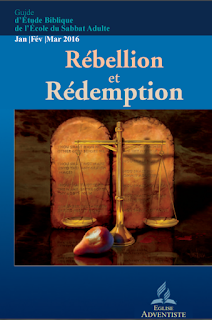We have not an high priest which cannot be touched with the feeling of our infirmities; but was in all points tempted like as we are, yet without sin. Hebrews 4:15.
Let us consider how much it cost our Saviour in the wilderness of temptation to carry on in our behalf the conflict with the wily, malignant foe. Satan knew that everything depended upon his success or failure in his attempt to overcome Christ with his manifold temptations. Satan knew that the plan of salvation would be carried out to its fulfillment, that his power would be taken away, that his destruction would be certain, if Christ bore the test that Adam failed to endure. The temptations of Satan were most effective in degrading human nature, for man could not stand against their powerful influence; but Christ in man's behalf, as man's representative, resting wholly upon the power of God, endured the severe conflict, in order that He might be a perfect example to us. There is hope for man.... The work before us is to overcome as Christ overcame. He fasted forty days, and suffered the keenest pangs of hunger. Christ suffered on our account beyond our comprehension, and we should welcome trial and suffering on our own account for Christ's sake, that we may overcome as Christ also overcame, and be exalted to the throne of our Redeemer....
We have everything to gain in the conflict with our mighty foe, and we dare not for a moment yield to his temptations. We know that in our own strength it is not possible for us to succeed; but as Christ humbled Himself, and took upon Himself our nature, He is acquainted with our necessities, and has Himself borne the heaviest temptations that man will have to bear, has conquered the enemy in resisting his suggestions, in order that man may learn how to be conqueror. He was clothed with a body like ours, and in every respect suffered what man will suffer, and very much more. We shall never be called upon to suffer as Christ suffered, for the sins not of one, but the sins of the whole world were laid upon Christ. He endured humiliation, reproach, suffering, and death, that we by following His example might inherit all things.
 Friday, January 29, 2016
Friday, January 29, 2016 Sadrak S.
Sadrak S. Daily Devotion
Daily Devotion No comments
No comments Thursday, January 28, 2016
Thursday, January 28, 2016 Sadrak S.
Sadrak S. Daily Devotion
Daily Devotion No comments
No comments Wednesday, January 27, 2016
Wednesday, January 27, 2016 Sadrak S.
Sadrak S. Daily Devotion
Daily Devotion No comments
No comments Tuesday, January 26, 2016
Tuesday, January 26, 2016 Sadrak S.
Sadrak S. Daily Devotion
Daily Devotion No comments
No comments Monday, January 25, 2016
Monday, January 25, 2016 Sadrak S.
Sadrak S. Ecole du Sabbat
Ecole du Sabbat No comments
No comments Monday, January 25, 2016
Monday, January 25, 2016 Sadrak S.
Sadrak S. Daily Devotion
Daily Devotion No comments
No comments
















